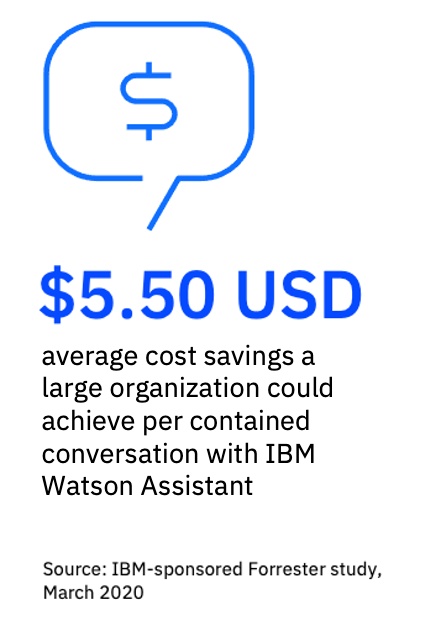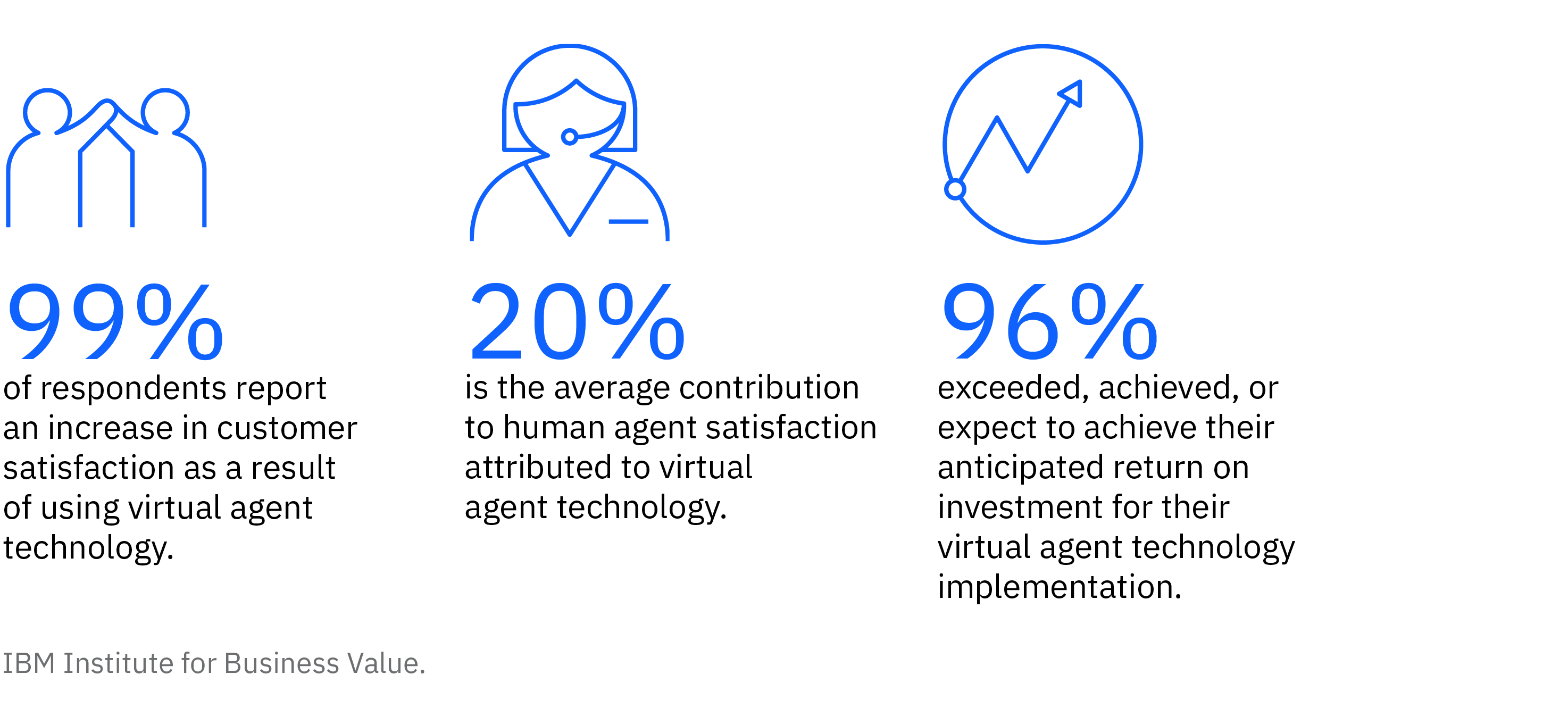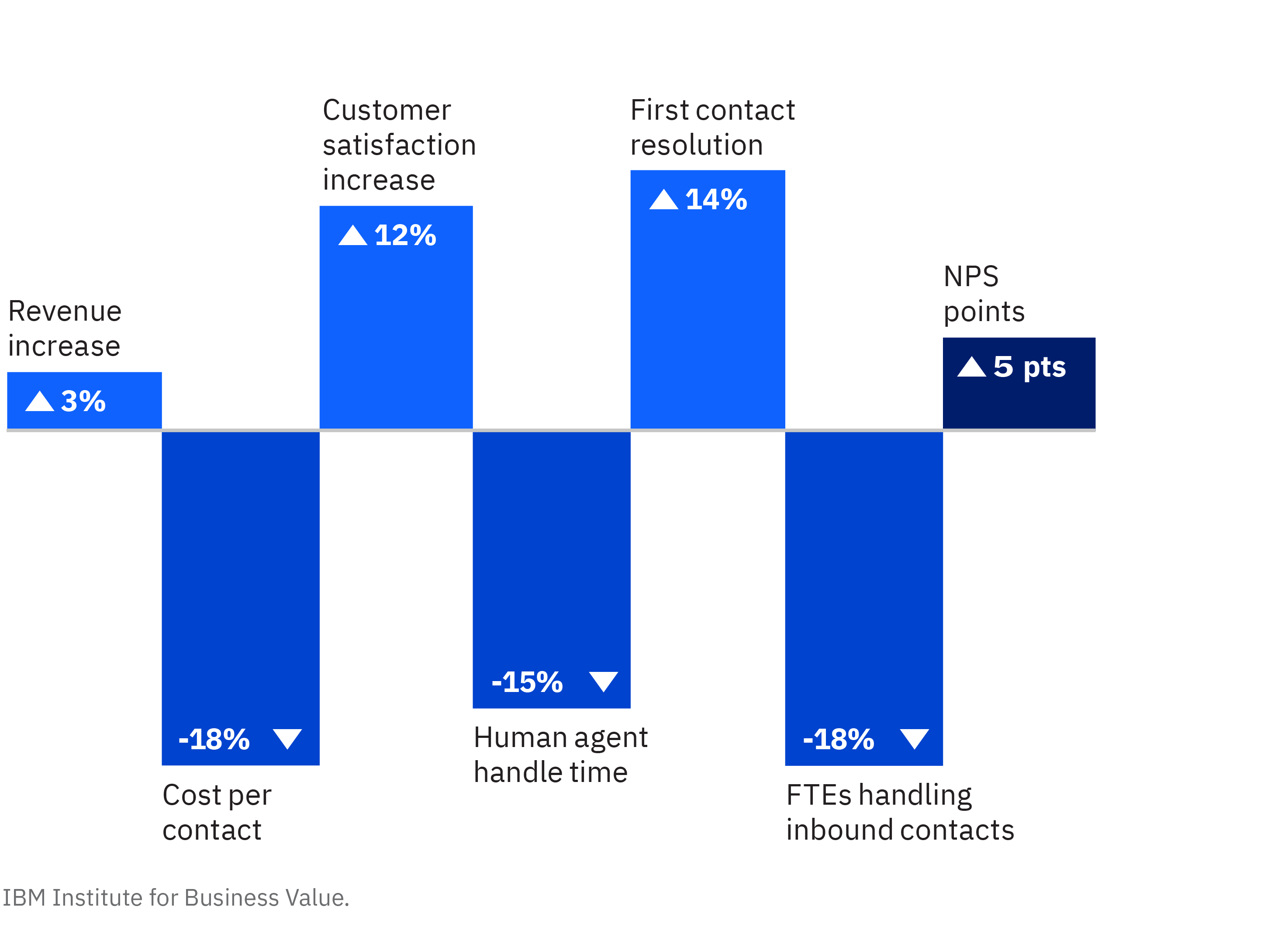IBM Services
Boosting Digital Contact in a Contactless World with AI and Hybrid Cloud
October 28, 2020
By Glenn Finch

For years, consulting firms have designed elaborate digital adoption strategies for their clients that the global pandemic expedited by 10 years in the last six months, in some cases. During lockdowns at the onset of COVID-19, people turned to the phone, internet and text messages en masse for information, resulting in sometimes four- to six-hour waits for contact center help. Answering product or service questions, solving account issues, guiding them to urgently needed resources and information required immediate assistance. Businesses and governments at all levels have struggled with how to augment staff with digital methods that manage increased workload, reduce operating costs and increase customer satisfaction. Collectively, these events created a perfect storm to speed up digital transformation across organizations.

Artificial intelligence (AI)-driven virtual agents, some of which are “chatbots,” proved to be an essential tool in their arsenal. And a new study from the IBM Institute for Business Value quantifies what my team has seen across many global client projects. As organizations face incredible surges of customer inquiries, those categorized as “leaders” in AI- and cloud-powered virtual agent technology (10 percent of survey respondents) have experienced significant cost savings, are better prepared to service their customers and employees, and can bounce back from business interruptions more quickly. At the same time, companies spinning up new virtual agents are seeing results in short order.
The study surveyed more than 1,000 companies, spanning 12 industries and 33 countries, that have used virtual agents for just six months to over four years. The study was vendor and technology agnostic. Organizations reported results in five key areas:
1. Value cases can be measured in the 10s to 100s of millions. Organizations implementing virtual agent technology are gaining great value from it—an IBM-sponsored Forrester study found a large organization could achieve average cost savings of $5.50 per contained conversation using IBM’s Watson Assistant. These kinds of cost savings can result from handling requests fully via virtual agents, and the IBV research shows organizations using virtual agents have an average containment rate of 64 percent. What’s more, on average 54 percent of all respondents in the IBV study have already achieved or exceeded their return on investment, and virtual agent technology is contributing to three percent revenue gains, on average.
One company seeing great value is GM Financial. GM Financial found that after the pandemic hit, live chat requests on its app increased dramatically. At the same time, its customer experience advocates were transitioning to a work-from-home setup. Fortunately, GM Financial’s Watson Assistant-powered virtual agent managed 50 to 60 percent of live chat requests, resolving approximately 90 percent of questions without human intervention.
COVID-19 has brought unprecedented financial variance to companies, and the combined value of cost savings, containment rates and business case achievement from virtual agents is an exceptional antidote to that variance.
2. 99 percent of organizations surveyed report that virtual agent use has increased customer satisfaction. Organizations use virtual agents for a variety of reasons, but improving customer satisfaction was by far the most cited. Our study found that for 46 percent of “leaders” in virtual agent technology, and 33 percent of other respondents, customer experience is the most important driver of virtual agent use.
One example of a company using virtual agents to delight customers is Vodafone Group. TOBi, Vodafone’s AI-based digital assistant, provides a central, modular platform that lets individual markets prioritize the channels that suit their customers’ preferences. As a result, the number of Vodafone customers messaging versus calling the call center has almost doubled. In Italy, two-thirds of customer contacts are now “contained,” or handled, through TOBi.
3. Virtual agents improve the experience of employee customer service agents. Some might consider this idea counterintuitive, but the study showed an average of 20 percent contribution to current human agent satisfaction attributed to the use of virtual agent technology.

Top takeaways from IBM’s “Value of Virtual Agent Technology" report.
Agents who feel valued and empowered with the proper tools and support are more likely to deliver a better experience to customers. Virtual agents can boost productivity by freeing up employees’ time to work on the most complex and rewarding customer engagements.
4. The more work virtual agent technology does—and the more complex the nature of that work—the greater the benefits. Our study found that the leaders in virtual agent use are achieving outsized gains. Among these leaders, 94 percent have already achieved or exceeded expected return on investment, compared to 49 percent of other organizations. The sooner companies start investing in this technology, the faster they can reap the rewards.
Medtronic, the world’s largest medical device company, is a great example of a company reaping the rewards of its virtual agent, a chatbot to help employees quickly and easily find answers to HR questions. The chatbot minimum viable product was created in less than 90 days using the IBM Garage, and is part of a larger cognitive transformation of HR that the company expects will help improve employee retention and customer satisfaction.
5. To maximize the benefits of virtual agent technology, hybrid cloud is key. Virtual agent technology’s success depends in part on the ever-growing volume of data that exists across internal and external sources. Here, a hybrid cloud architecture is key. According to our study, considerably more “leaders” reported having fully integrated cloud strategies for their service desk systems (44 percent) than others (19 percent).

Leaders’ average reported impact of using virtual agent technology.
A great example is Burger King Brazil. The company worked with IBM to create a new virtual assistant based on IBM Watson Assistant, which helped during the pandemic to provide its 16,000 employees with self-service support and more transparent communications and connection to each other and company leadership. A hybrid and multicloud cloud architecture, accessing IBM Cloud in the Burger King Brazil IT environment, helps the assistant respond in near real-time.
It’s clear that organizations deploying and embedding virtual agents into their overall business strategy are realizing benefits across the board—with their customers, their employees and their financials. Those that have leveraged fully integrated cloud strategies have been able to outpace others in these gains. The value of virtual agent technology has been evident for some time, and based on these recent survey insights, we believe that value will continue to accelerate.
|
|
Glenn Finch is Global Managing Partner for Cognitive Business Decision Support at IBM Services. |
